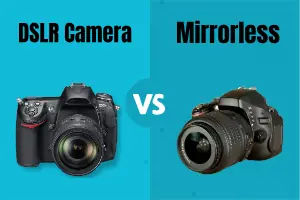Cloud vs Local Storage: Detailed Comparison for Young Learners
Published: 4 Dec 2024
Today, we’re going to explore two main types of storage: Cloud Storage and Local Storage. Imagine you have a big treasure chest where you keep your favorite toys, but one is at your home, and the other is far away in a magical cloud you can access anytime. Both options have benefits and challenges. “Understand cloud computing vs virtualization in detail.”

Let’s dive in to find out the differences, benefits, and disadvantages of each so you can choose the best one!
Here’s a quick comparison table between two different Storages, cloud vs local:
| Cloud Storage | Local Storage |
| Cloud storage is like a magical treasure chest in the sky. Your files are stored online on servers you can access from any device, anywhere in the world, as long as there’s an internet connection. | Local storage is more like your personal locker or computer hard drive, where files are saved directly on the device. You don’t need the internet to access them, they’re always right there! |
Cloud vs Local Storage: Which is Better?
Here we explain the key comparison between Cloud Storage and Local Storage in details:
Accessibility and Location
Let’s discuss accessibility and location of cloud and local storage:
Cloud Storage Accessibility:
Here’s a list of cloud storage accessibility and location:
- You can access your files from anywhere in the world.
- An internet connection is necessary to use cloud storage.
- Files sync across all your devices, like your phone, tablet, and computer.
- No need to carry any physical device around.
- Sharing files with others is easy, often with just a link.

Local Storage Accessibility:
Here’s a list of local storage accessibility and location:
- Files are stored on a specific device like a USB or hard drive.
- You don’t need the internet to access your files.
- You must carry the device physically to share or access data elsewhere.
- Sharing is limited without additional tools like cables or software.
- Data access is tied to the hardware’s condition.
Cost and Pricing
Let’s talk about cost and pricing of cloud and local storage:
Cloud Storage Costs:
Here’s a list of cloud storage cost:
- Most cloud services offer subscription plans.
- You can start small and upgrade as your storage needs grow.
- Free plans are available but often come with limited space.
- Be prepared for extra fees if you exceed your plan’s limit Great for those who want flexibility without heavy upfront costs.
Local Storage Costs:
Here’s a list of local storage pricing:
- You pay once for devices like external hard drives or SSDs.
- No ongoing monthly or yearly payments.
- Upfront costs can be higher but may save money in the long term.
- Storage devices have a limited lifespan, requiring replacements eventually.
- You won’t encounter unexpected fees after purchase.
Security and Privacy
Let’s talk about security and privacy of cloud and local storage:
Cloud Storage Security:
Here’s a list of cloud storage security and privacy:
- Cloud providers encrypt your data for safety.
- Your files are stored on servers managed by the provider.
- There’s always a risk of hacking or cyberattacks.
- Multi-factor authentication helps keep accounts secure.
- Privacy concerns arise as your data is on a third-party server.

Local Storage Security:
Here’s a list of local storage security and privacy:
- You have full control over your data and its access.
- The risk of someone stealing your device is present.
- You don’t need to depend on external servers for storage.
- Your data isn’t exposed to online threats like hacking.
- Backups are your responsibility to ensure safety.
Data Backup and Recovery
Let’s talk about data backup and recovery of cloud and local storage:
Cloud Storage Backup Features:
Here’s a list of cloud storage backup features:
- Files are backed up automatically without user input.
- You can recover your data from anywhere with an internet connection.
- Providers often have redundant systems to protect your files.
- Lost a file? Cloud services usually offer easy recovery tools.
- Syncs seamlessly, so your backups stay updated.
Local Storage Backup Features:
Here’s a list of local storage recovery features:
- You must manually create backups on another device.
- If your device gets damaged, data recovery might be challenging.
- Physical drives are more prone to wear and tear.
- Recovering lost files can be time-consuming.
- Automation isn’t available, so backups depend on your efforts.
Speed and Performance
Let’s talk about speed and performance of cloud and local storage:
Cloud Storage:
Here’s a list of cloud storage speed and performance:
- Performance heavily depends on your internet speed.
- Large files might take longer to upload or download.
- Designed for remote access but can experience delays.
- Providers frequently update services for better performance.
- Latency issues can occur during high usage.

Local Storage:
Here’s a list of local storage speed and performance:
- Data access is instant without internet reliance.
- File transfers are typically faster with USB or direct connections.
- Performance depends on the quality of your hardware.
- No external factors slow down access or transfers.
- Ideal for quick and local file handling.
Advantages of Cloud Storage
Here we discuss the benefits of cloud storage in details:
| Pros |
|---|
|
Disadvantages of Cloud Storage
Here we discuss the drawbacks of cloud storage:
| Cons |
|---|
|
Advantages of Local Storage:
Here we talk about the benefits of local storage:
| Pros |
|---|
|
Disadvantages of Local Storage
Here we talk about the drawbacks of local storage:
| Cons |
|---|
|
When to Use Cloud Storage
- When you need easy access on multiple devices
- When you have limited storage on your main device
- For secure backups of essential files
- To share files easily with friends or family
- When you want to reduce your environmental impact
When to Use Local Storage
- When internet access is limited or unreliable
- For sensitive files needing maximum privacy
- If you prefer one-time purchase costs over subscriptions
- When you need fast access to large files
- For personal use without the need for file sharing
Comparing the Top Cloud Storage Providers

Let’s discuss the top cloud storage providers one by one:
Google Drive
- Integrated with Google Workspace: Works seamlessly with Google Docs, Sheets, and Slides for productivity.
- Free Storage: Offers 15 GB of free storage for new users.
- Cross-Platform: Accessible on Android, iOS, and desktop devices.
- Collaboration-Friendly: Allows multiple users to work on shared files in real-time.
- Advanced Search: Built-in AI-powered search helps locate files quickly.
Dropbox
- Simple Interface: User-friendly design for easy navigation and file management.
- File Sharing: Provides link-based sharing, even for non-Dropbox users.
- Offline Access: Files can be accessed offline once synced.
- Version History: Keeps previous versions of files for up to 180 days on higher-tier plans.
- Third-Party Integrations: Works with tools like Slack, Zoom, and Microsoft Office.
“Check our article on Google Drive vs Dropbox for storage options.”
OneDrive
- Microsoft Integration: Fully integrated with Microsoft Office apps like Word, Excel, and PowerPoint.
- Generous Storage Plans: Offers 5 GB free and up to 1 TB with Microsoft 365 subscriptions.
- Cross-Device Sync: Automatically syncs files across Windows, Mac, and mobile devices.
- Secure Sharing: Includes password protection and expiration dates for shared links.
- Real-Time Collaboration: Supports collaborative editing of Office documents.
iCloud
- Apple Ecosystem: Designed for seamless integration with iPhones, iPads, and Macs.
- Free Storage: Comes with 5 GB of free storage for Apple users.
- Photo and Backup Features: Automatically backs up photos, videos, and device settings.
- Privacy Focus: Encrypted data with strong privacy protections.
- Cross-Device Compatibility: Works on Windows and via a web browser, though optimized for Apple devices.
Amazon Drive
- Integrated with Amazon Services: Ideal for Prime members, offering photo storage benefits.
- Generous Photo Storage: Unlimited photo storage for Prime members.
- Flexible Storage Plans: Ranges from 100 GB to 30 TB to suit various needs.
- Mobile App: Allows easy uploading and accessing of files on the go.
- Backup Functionality: Helps back up files, photos, and videos from multiple devices.
Conclusion
When it comes to storing your digital “treasures,” both cloud storage and local storage offer amazing options. Each has its advantages and challenges, from accessibility and flexibility to privacy and control.
Choosing the best one depends on what you need most, and luckily, many people use a mix of both to keep their files safe, secure, and accessible. “See how hosting choices like VPS vs Dedicated servers compare.”
FAQs about Cloud Storage and Local Storage:
Here are some of the most FAQs related to Cloud Storage and Local Storage:
Cloud storage is internet-based, while local storage is stored directly on your device, allowing for immediate access.
Yes, many people use a combination of both for better convenience, security, and backup.
Cloud storage often has advanced security features, but local storage relies on your personal security measures.
If you lose internet access, you won’t be able to access your files stored in the cloud until the connection is restored.
Local storage typically involves a one-time purchase, while cloud storage may require ongoing subscription fees.
Yes, free cloud storage plans often have limits, but you can purchase additional space when needed.
Popular cloud storage services include Google Drive, Dropbox, and iCloud, which allow you to save files online.
If a local storage device fails, you may lose your files unless you have a backup saved elsewhere.
While cloud providers implement security measures, no system is completely immune to hacking; local storage also has risks.
Yes, you can store videos in cloud storage, but large files might require a paid plan for extra space.

- Be Respectful
- Stay Relevant
- Stay Positive
- True Feedback
- Encourage Discussion
- Avoid Spamming
- No Fake News
- Don't Copy-Paste
- No Personal Attacks

- Be Respectful
- Stay Relevant
- Stay Positive
- True Feedback
- Encourage Discussion
- Avoid Spamming
- No Fake News
- Don't Copy-Paste
- No Personal Attacks





